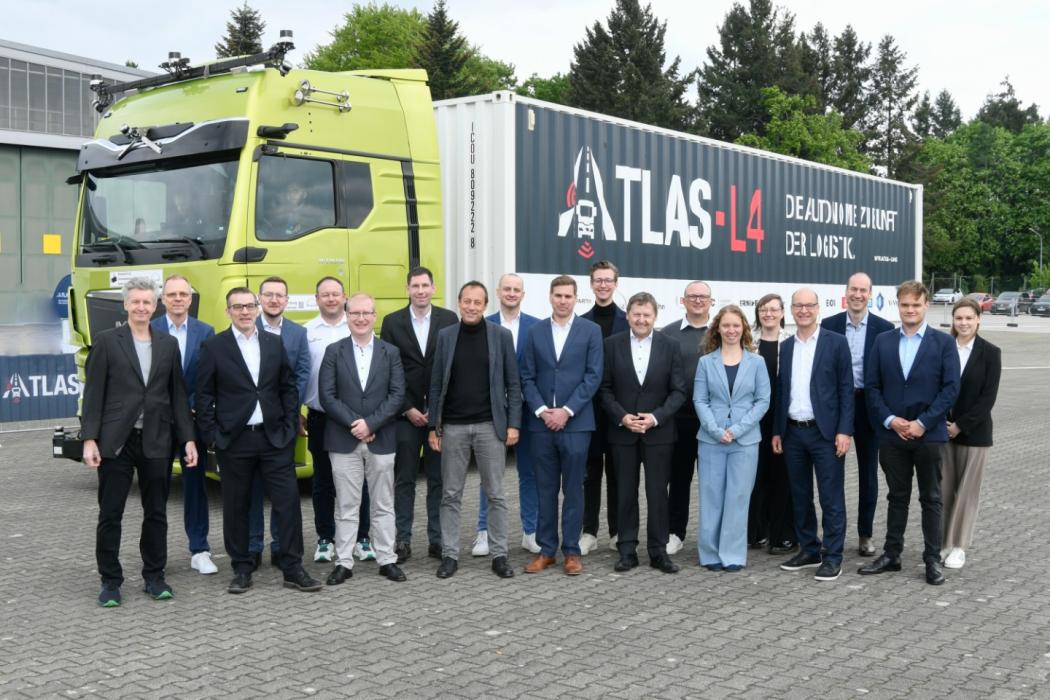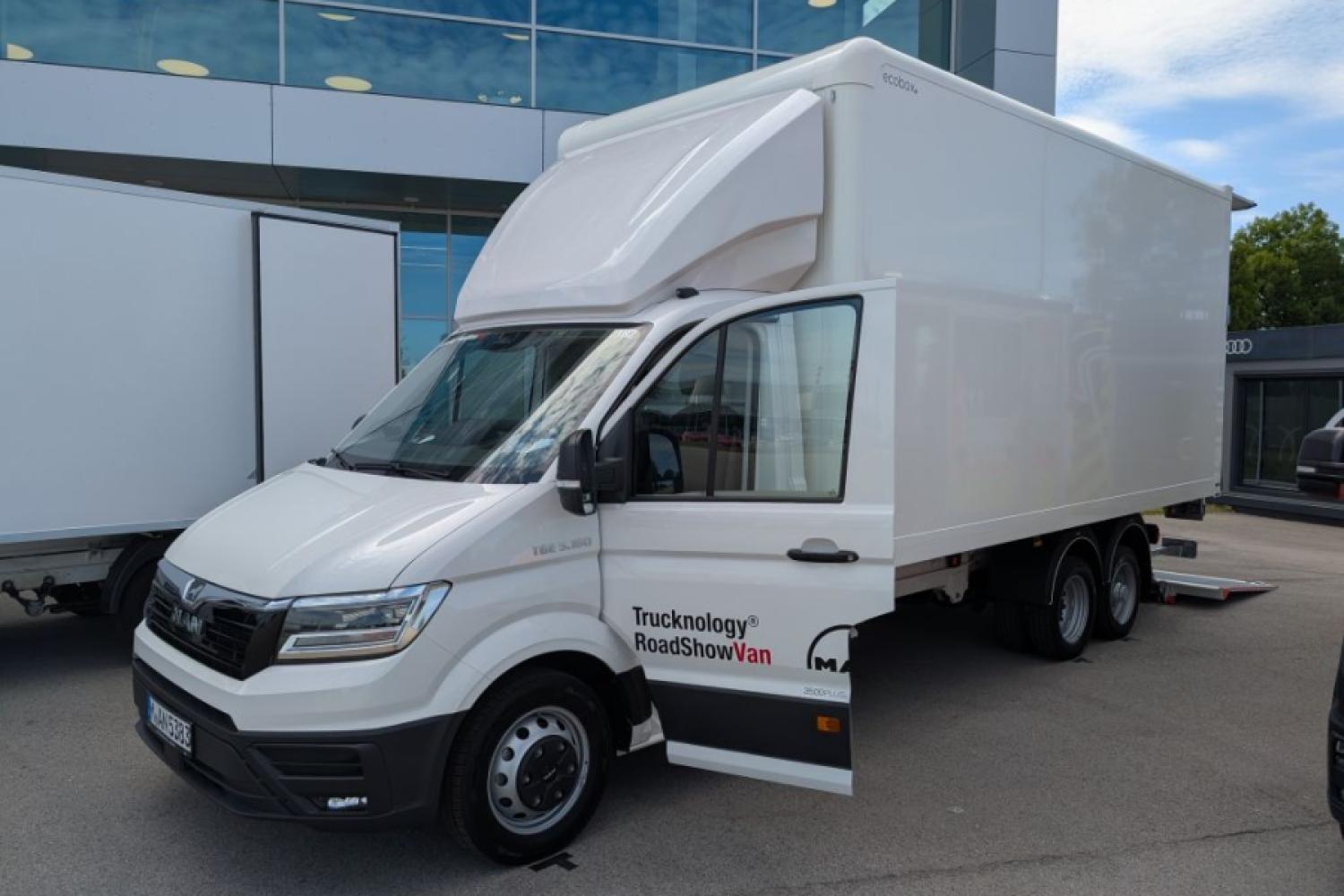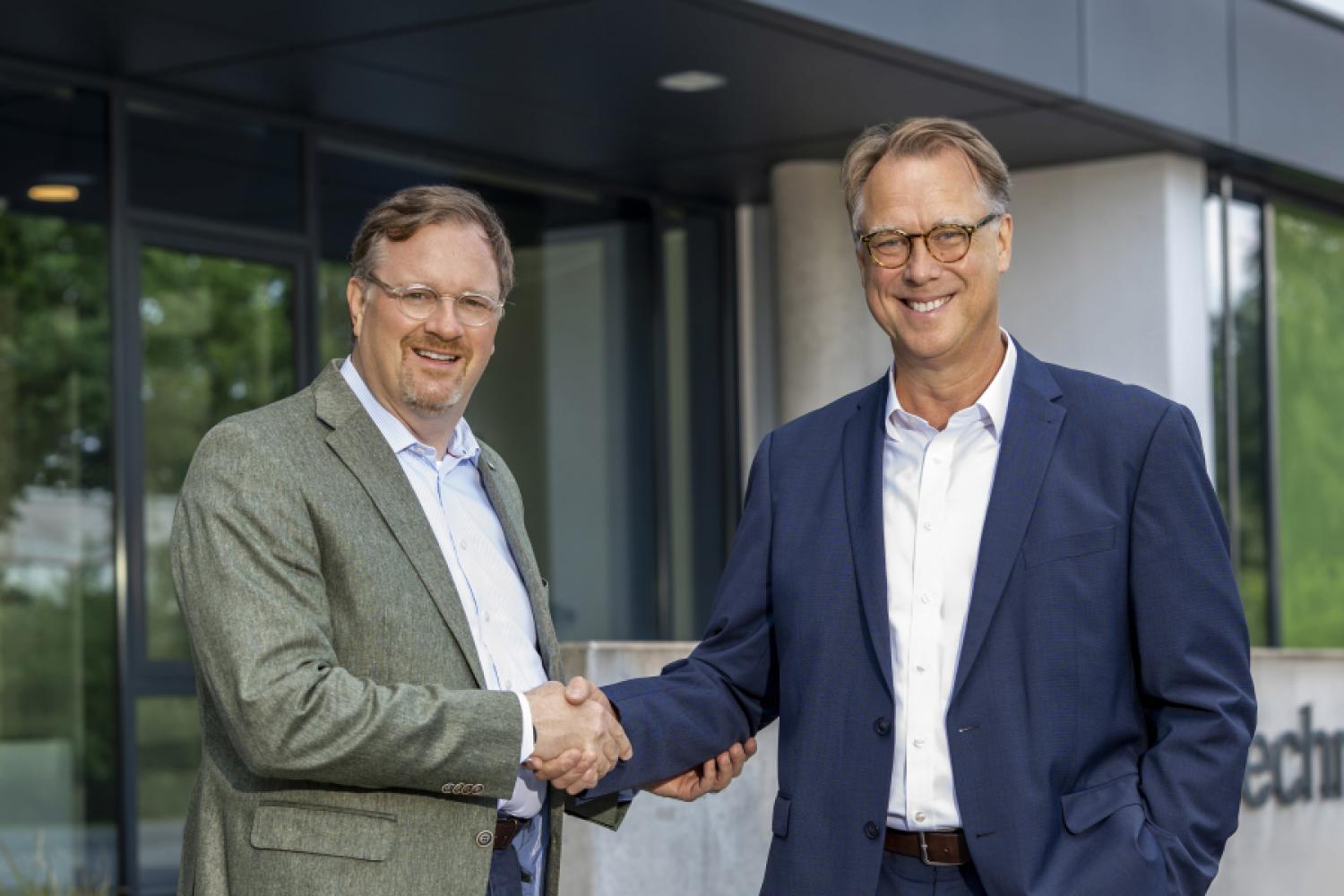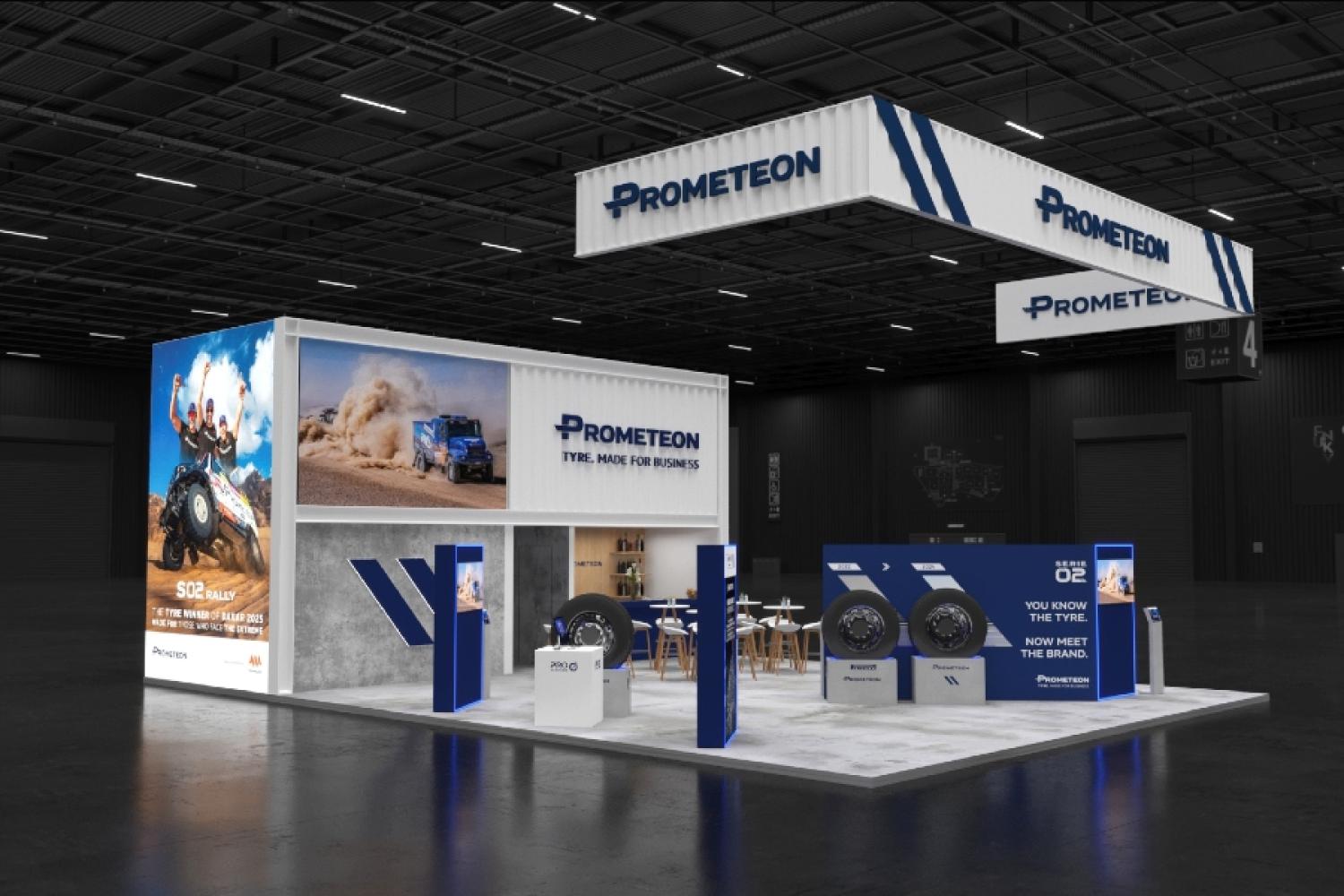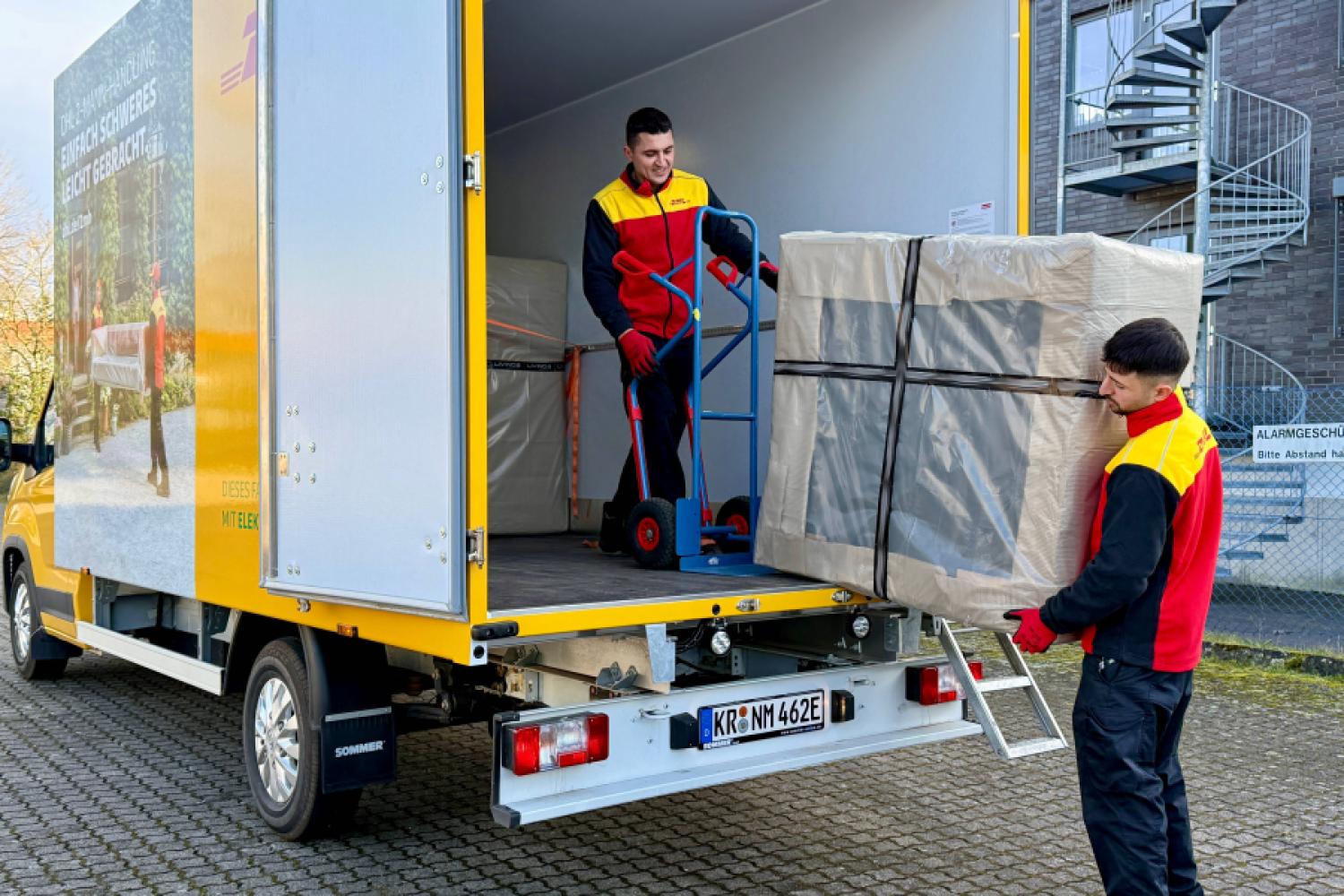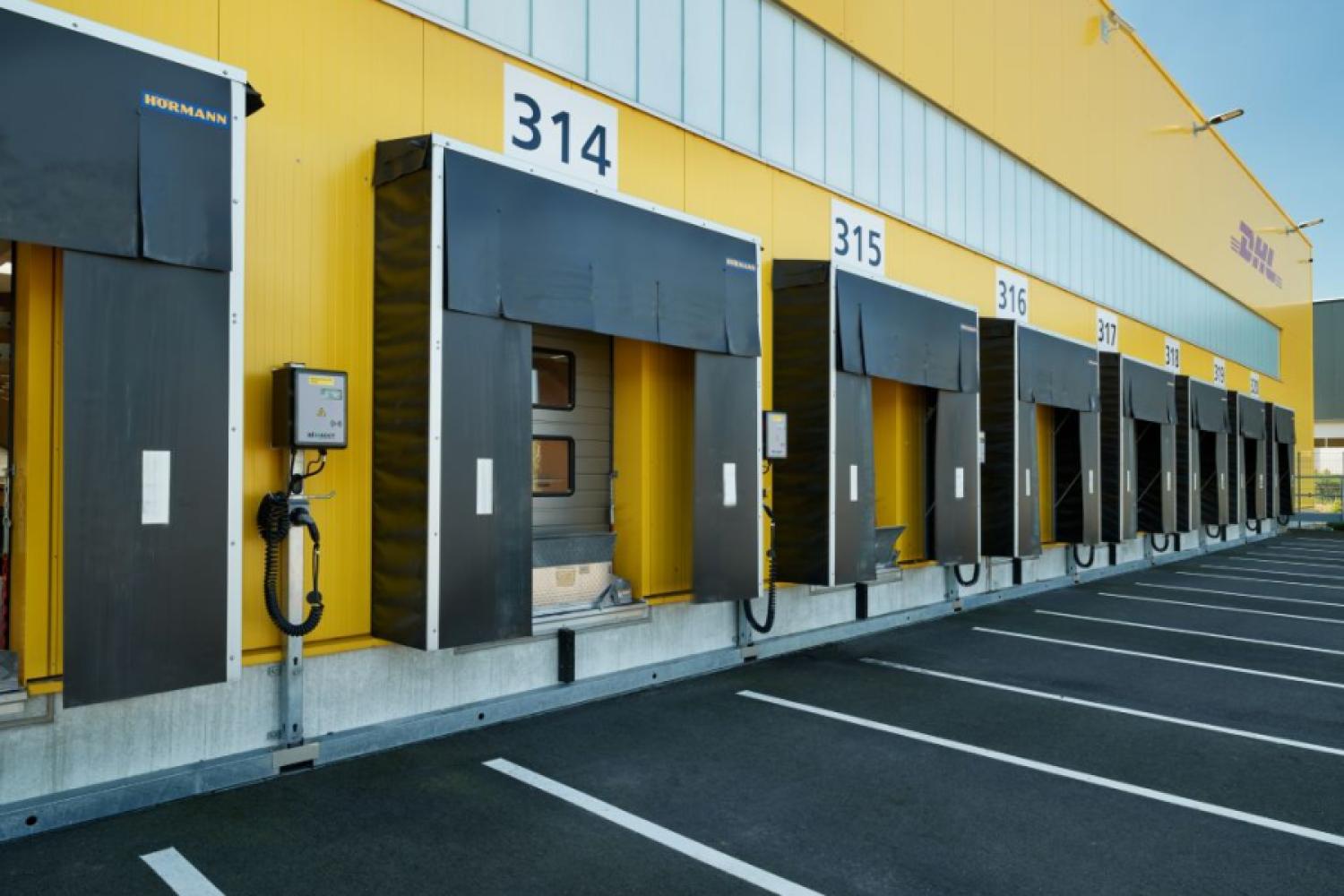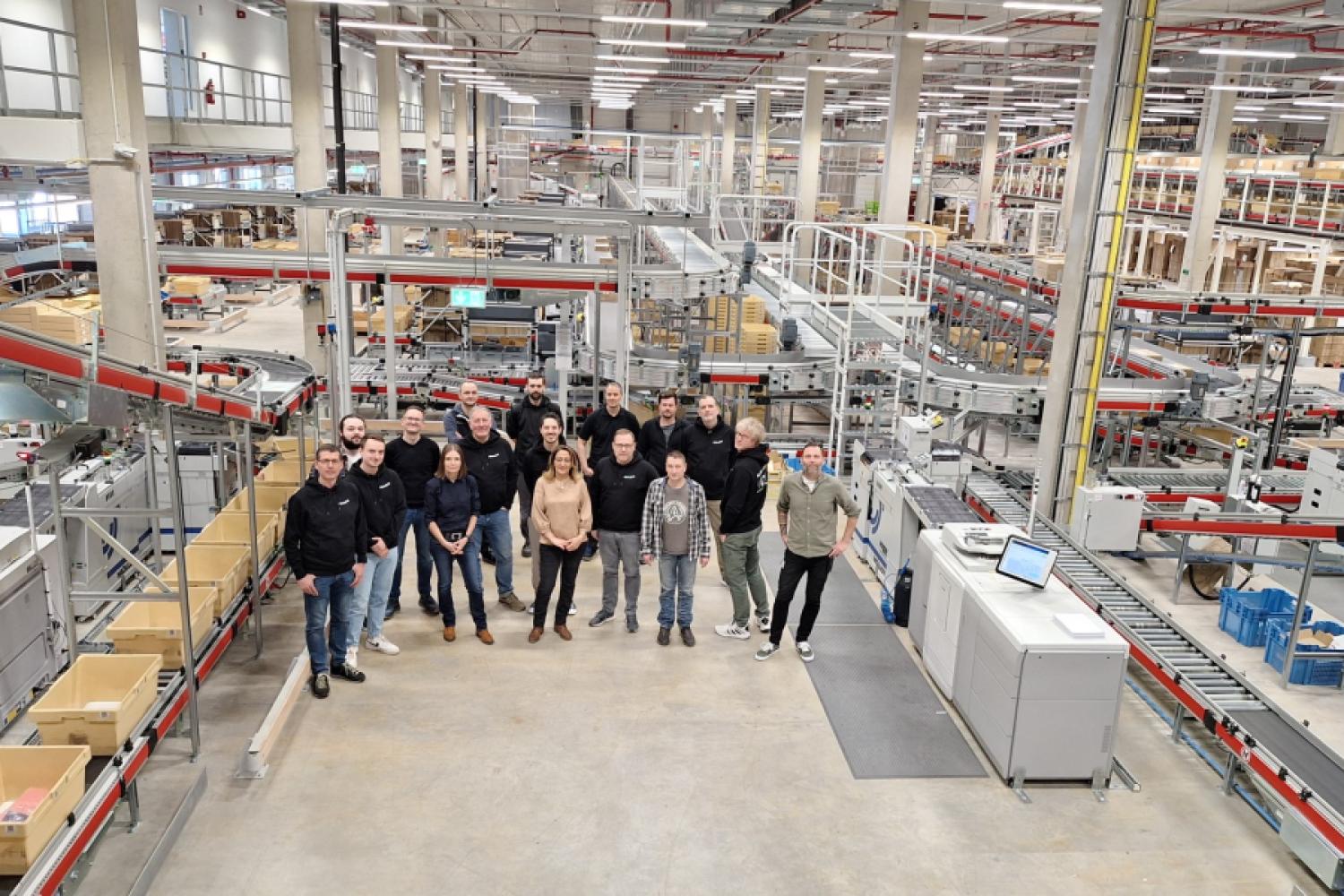The autonomous truck on the road has become a reality thanks to the work of around 150 engineers. This is the conclusion drawn by the twelve project partners from industry, science, software development, and infrastructure after three years of the research and development project ATLAS-L4 (Automated Transport between Logistics Centers on Highways at Level 4). MAN Truck & Bus, Knorr-Bremse, Leoni, Bosch, Fernride, BTC Embedded Systems, Fraunhofer AISEC, Technical University of Munich, Technical University of Braunschweig, TÜV Süd, Autobahn GmbH, and the Würzburg Institute for Traffic Sciences (WIVW GmbH) combined their forces for this project.
On May 7 and 8, the project participants presented the results of ATLAS-L4 to approximately 200 guests in the presence of representatives of the Federal Ministry for Economic Affairs and Climate Action – with driving demonstrations at the ADAC Mobility Test Center in Penzing and on the highway, an exhibition covering about 1,000 square
meters, and scientific lectures.
The consortium set itself a clear goal in the project, funded by the Federal Ministry for Economic Affairs and Climate Action and equipped with a total budget of 59.1 million euros: to bring a Level-4-automated and thus autonomous truck to highways for hub-to-hub transport. The basis for this was the law passed in 2021, which fundamentally enables autonomous driving on defined routes in Germany under technical supervision.
“Together with our partners, we set ourselves a high goal and realized an industrializable basic concept for autonomous driving in hub-to-hub use,” said Dr. Frederik Zohm, Board Member for Research and Development at MAN Truck & Bus. “The development and integration of the redundant components necessary for safe use, such as steering, brakes, and electrical system, as well as creating a validation concept, required interdisciplinary competence and close teamwork. As a consortium, we have proven with the project:
Autonomous driving trucks are realizable!”
This is how the testing phase went: On January 1, 2022, the starting shot was fired for ATLAS-L4. After the Federal Motor Transport Authority granted the first Level-4 testing approval for a commercial vehicle manufacturer in April 2024, the premiere in public road traffic took place with the first highway drive of an autonomous truck in Germany – accompanied by the Federal Minister of Transport, Volker Wissing. During this and all other test drives, a safety driver was always on board. The automation software in the vehicle was continuously optimized over a long period through regular releases and directly tested in practice, according to the project report.
Prototypical technology as a blueprint
According to the consortium, all project goals have been ticked off: The safety-relevant components for the Level-4 architecture, such as redundant brake system, electrical system, and steering, were built. A validation concept
was created, and the Control Center for technical supervision was put into operation simultaneously. Risk analyses and safety considerations for Level 4 – including cybersecurity, for instance, in the form of authentic and encrypted communication, as well as defining functional safety measures such as redundancies and degradation concepts for the autonomous driving system – took place. The result is a prototypical technology as a blueprint for further projects and series developments.
The work of ATLAS-L4, according to the partners, can therefore be used as a basic concept for future industrial developments, although various detailed questions still need to be clarified for a series-production autonomous truck, as the project has shown. “We have done valuable pioneering work by providing practical proof of the technical feasibility of autonomous trucks,” said project coordinator Sebastian Völl, MAN Truck & Bus. “These concepts are now flowing into further development work for the series development
